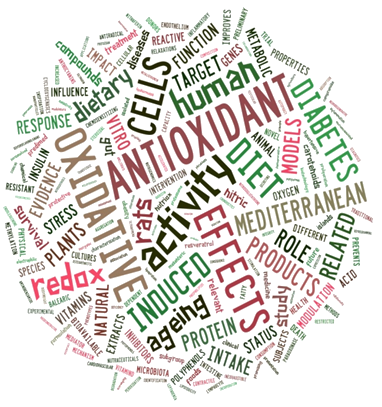 From the 27 to 29 September 2017, the European School of Chemistry, Polymers and Materials (ECPM University of Strasbourg, France) will welcome the joint NutRedOx COST Action CA16112 meeting & the Postgraduate Training network “NutriOx” 2017.
From the 27 to 29 September 2017, the European School of Chemistry, Polymers and Materials (ECPM University of Strasbourg, France) will welcome the joint NutRedOx COST Action CA16112 meeting & the Postgraduate Training network “NutriOx” 2017.
The NutriOx Network brings together emerging junior scientists from the region and experts from various disciplines, ranging from analytical and organic chemistry to medicinal, pharmaceutical, nutritional or agricultural sciences to cite a few. This long-term network aims to address questions of nutrition and health. Every year, the NutriOx network runs a workshop for early stage and experienced scientists in the form of an open and informal “Atelier” that is supported by the French-German University. In the tradition of the previous NutriOx workshops (University of Saarbrücken in September 2012, University of Burgundy in September 2013, University of Metz in October 2014, Hospital Kirchberg in Luxembourg in November 2015 and University of Kaiserslautern in September 2016), this Postgraduate Training Atelier “NutriOx” 2017 will undoubtedly provide an international forum for early stage scientists, graduate and PhD students, as well as Post-Docs.
This 6th NutriOx Atelier 2017 will be organized jointly with the NutRedOx COST Action annual meeting (CA16112), so that the participants can benefit from the presence and expertise of these two intimately related networks. The NutRedOx COST Action (CA16112) entitled “Personalized Nutrition in aging society: redox control of major age-related diseases” started in March 2017 and is led by Pr. Mustapha Cherkaoui Malki (University of Burgundy, France) and co-led by Pr. Agnieszka Bartoszek (Gdansk University of Technology, Poland). Its scientific items are closely linked to the NutriOx network. This COST Action gathers experts from more than 35 European and Mediterranean countries and from different disciplines that are involved in the study of biological redox active food components that are relevant to the ageing organism, its health, function and vulnerability to disease.
